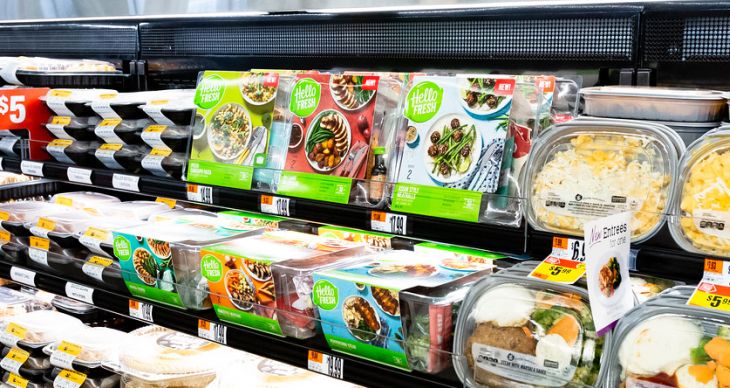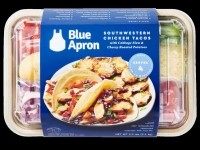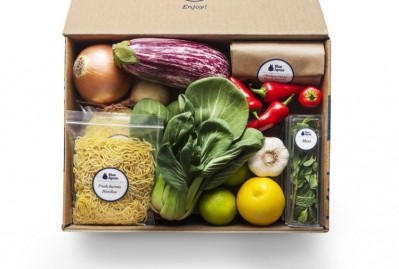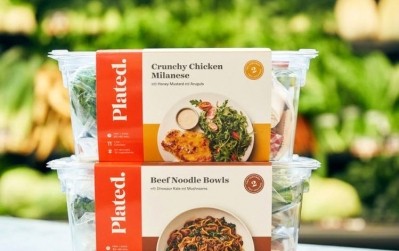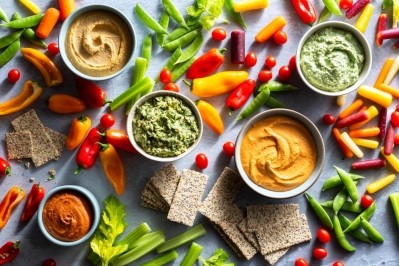Meal kit co Purple Carrot acquired by Japanese online grocer for $12.8m (with $17.2m to follow if earn-out goals are met)
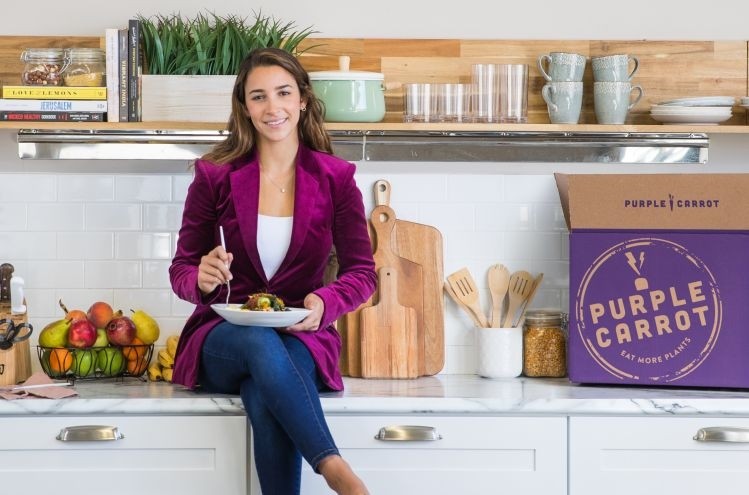
According to an April 29 notice on Oisix ra daichi’s website, Purple Carrot generated a net loss of $4.4m on sales of $40.3m in 2018 (an improvement on 2017, when it made a net loss of $4.9m on sales of $28.6m).
In a release issued this morning, Oisix said Purple Carrot’s corporate headquarters will remain in Massachusetts, while the executive leadership team is staying on.
Kohey Takashima, founder and CEO of Oisix - which operates seven distribution centers throughout Japan, and works with 4,000+ farmers to provide fresh produce to consumers - said: “This acquisition gives us the chance to make a global impact. At the same time, it represents an exciting step in our growth trajectory to expand our operations and bring the first plant-based meal kits to Japan.”
Purple Carrot founder and CEO Andy Levitt added: "It’s now a great opportunity to join Oisix, positioning Purple Carrot for continued domestic and future global growth with a highly authentic partner in the wellness category."
Purple Carrot highlighted ‘strong margin growth’ in 2018
Levitt – who sold a minority stake in Purple Carrot to Fresh Del Monte Produce last year for $4m and struck a high-profile partnership with Olympic gymnast Aly Raisman – told FoodNavigator-USA last October that Purple Carrot was experiencing “very strong margin growth” and expected to “be profitable in 2019.”
He also claimed that Purple Carrot had been “extremely capital efficient,” adding: “We’ve been told our customer retention data is the strongest in the industry.”
However, while he remained “very bullish” about the subscription-based market, he acknowledged that “ecommerce companies like ours that remain independent from large grocers will need to elevate the experience for subscribers and create a remarkable experience for consumers.”
Oisix ra diachi: ‘The business models of both companies are very similar’
According to Oisix ra diachi's April 25 Notice Regarding Acquisition of Shares of Three Limes, Inc (d.b.a. Purple Carrot), the two parties began talking in the second half of 2018: “We concluded that the business models of both companies are very similar and that it is easy to generate synergy, and we acquired the shares of Purple Carrot and decided to expand our business in the United States.
“As a result of these developments, in addition to the development of business models in Asian countries based on Oisix brands, Purple Carrot's business development in the US has also been added to our overseas business.”
Purple Carrot was represented in the transaction by M&A and private placement advisory firm Whipstitch Capital.
'Meal kits must adapt to become brands serving all need states'
So what - if anything - does this tell us about the broader meal kit market?
Speaking to us on Tuesday night, Sean Butler - who formerly held senior positions at Purple Carrot and Chef’d and is now managing director at consumer products supply chain consultancy LIDD - said he still had faith in the category despite the low price paid for Purple Carrot (less than 1x revenue).
"Meal kits are a sustainable category online and in-store. US meal kit companies have made major mistakes in designing the infrastructure and technology to support their supply chains, and these mistakes are in many cases not recoverable because of the current capital positions of these companies."
But he added: "More recently founded meal kits, particularly those in Asia, have learned from the successes and failures of US companies and are performing with very impressive metrics. In The United States, meal kits must adapt to become brands serving all need states (ready-to-cook, ready-to-eat, heat & eat) and dayparts.
"Digital and in-store channel convergence is happening with or without meal kits - the strong and enduring brands will serve consumers quickly, where they are, with flexible needs. This will require strategic partnership with a retailer or large e-commerce company."
Mercatus on meal kits: Find your niche
Speaking to us last week, Sylvain Perrier, president and CEO at ecommerce platform provider Mercatus, said meal kit brands had tapped into a consumer need, but had struggled to build a viable business model, with subscription based home delivery firms finding it hard to retain customers, and retailers finding it hard to manage shrink on in-store meal kits, which are high-value items with a short shelf-life.
The rapid growth of services from GrubHub to UberEats enabling consumers to order pre-prepared food for delivery in 20 minutes without a subscription had also presented consumers with options that didn’t exist when many meal kit brands got started, he said.
“There are high customer acquisition costs, churn as high as 60-80% in some cases, and the investment you have to make on the back end to create an acceptable margin is extremely high.
"So really the business model is fundamentally flawed unless you are able to go after a very specific niche, like keto, meals for athletes, meals for babies, and so on [meal kit co Sun Basket - which has just raised $30m in a Series E round - said its diet-specific meal plans resonate extremely well with consumers]."
“Shrink is tricky with meal kits, but we now have a really good idea of how many our stores sell per week, so we are allocating products accordingly rather than having extra inventory that’s going to date really quickly.
“Retailers all want to be in this space, but I think everyone is still trying to figure out how meal kits work in bricks and mortar. It was a strategic play for us to partner with Hello Fresh because we wanted a brand that would give us instant credibility, and they’re doing significantly better [than meal kits previously sold at Giant stores].
“Having new items cycling in has also been critical, as when we pulse in new items customers recognize that instantly and buy them.”
Paul Chapman, director of bakery and deli at Landover-based Giant Food (read more HERE)
Could Blue Apron be delisted?
His comments came as one of the highest profile brands in the space - Blue Apron - said it had received written notice from the NYSE that it could be delisted because its average share price had been under a dollar for 30 days.
While customer numbers at the loss making company had plummeted from over a million in Q1 2017 to just 550,000 in Q1 2019, much of this was due to a deliberate reduction in marketing spend as it focused on attracting more profitable customers, claimed the firm, which posted a net loss of $5.3m on net revenues of $141.9m in the first quarter of 2019. (Read more HERE.)
*Editor's note: An earn-out is a risk-allocation vehicle, where part of the purchase price of a company is deferred. The earn-out is paid based on the performance of the acquired business over a specific period of time.
We previously reported the initial payment as $4m based on figures in a document published by Oisix on its website (Notice Regarding Acquisition of Shares of Three Limes, Inc. (d.b.a. Purple Carrot), which stated the total acquisition value as $21m, including an earn-out consideration of $17m. The document is still live on the company's website, but we understand it will be updated.
